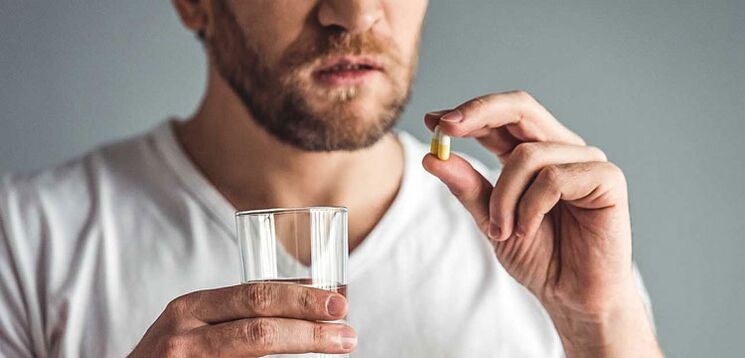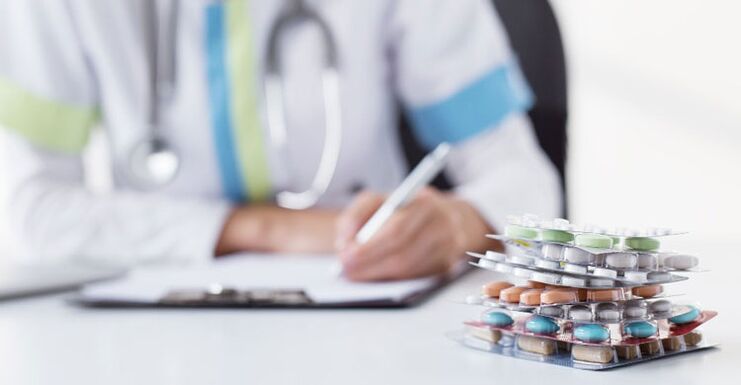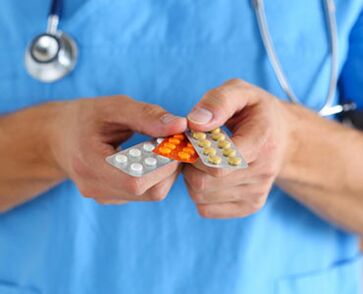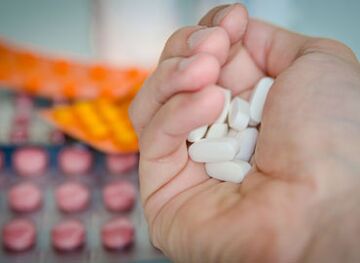
Can prostatitis be eliminated with medication?
Combined drug treatment of prostate inflammation is the only reliable way to defeat the disease. After completing the mandatory medication course, physical therapy and exercise therapy are performed to consolidate the results.
What medicine should I take for prostatitis?
- Relieve inflammation.
- Eliminate infectious factors.
- Relieves pain and promotes urination.
- Restores prostate function and improves blood circulation.

anti-inflammatory drugs
- in tablets.
- injection.
- Enema solution.
- Rectal suppository.
for pain and spasms

- Painkillers are a great help during exacerbations.
- Antispasmodics. For severe cramps, belladonna tincture and relaxants are recommended to relieve tension in the muscle tissue and normalize urination.
antibiotic
hormones
- Increased libido.
- Restore erectile function.
- Prevents glandular tissue proliferation and promotes urine outflow.
If anti-androgen blockade does not help, surgical castration - removal of one or both testicles - is recommended.
herbal therapy
- Relieve inflammation.
- Improve blood circulation.
- Stimulates immune system function.
- Relieve symptoms of disease.
- Enhances erection and libido.
Although herbal remedies are relatively harmless, they should only be taken as prescribed by your treating doctor. Self-prescribed medications to treat prostate inflammation are detrimental to the health of the male reproductive system.
How to take medicine correctly

- In severe anemia, the use of drugs that normalize blood circulation before and after surgery is prohibited. In addition, simultaneous use of multiple anticoagulants was not included.
- Antibiotics take a heavy toll on the gut microbiome. In addition to the prescribed regimen, gastrointestinal protection is provided in the form of probiotic medications. To increase the effectiveness of probiotics and quickly restore the microbiota, fermented dairy products are introduced in the diet: kefir and yogurt.
- If this possibility exists, suppositories and injections are used instead of tablets. Some rectal suppositories are analogues of prostatitis medications in tablet form, but they work faster and cause less damage to the gastrointestinal tract.
- Choose the drug with the fewest side effects. Modern drugs for the treatment of prostatitis should be given priority. Antibiotics and NSAIDs are less harmful to healthy cells in your gut.























